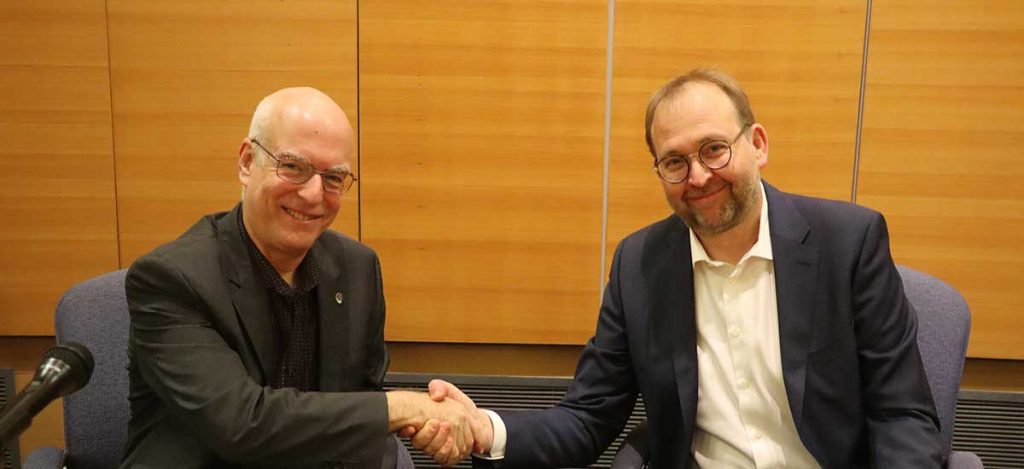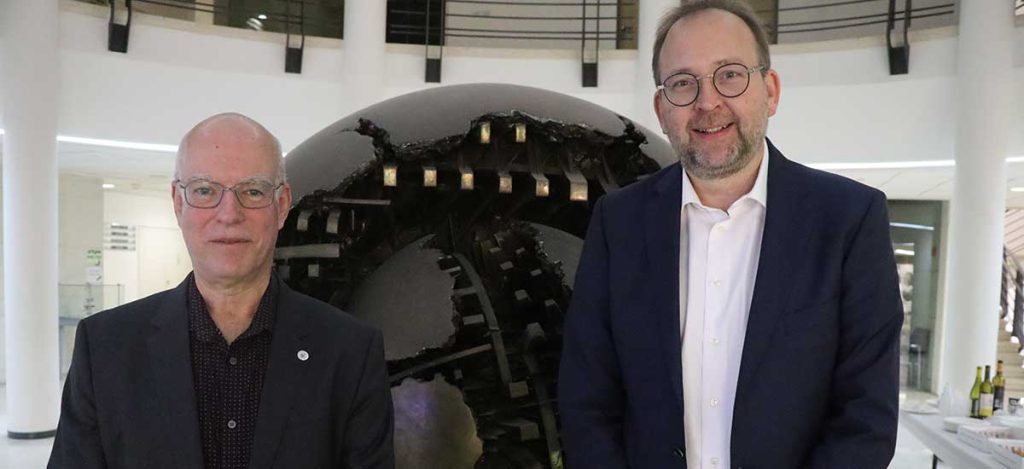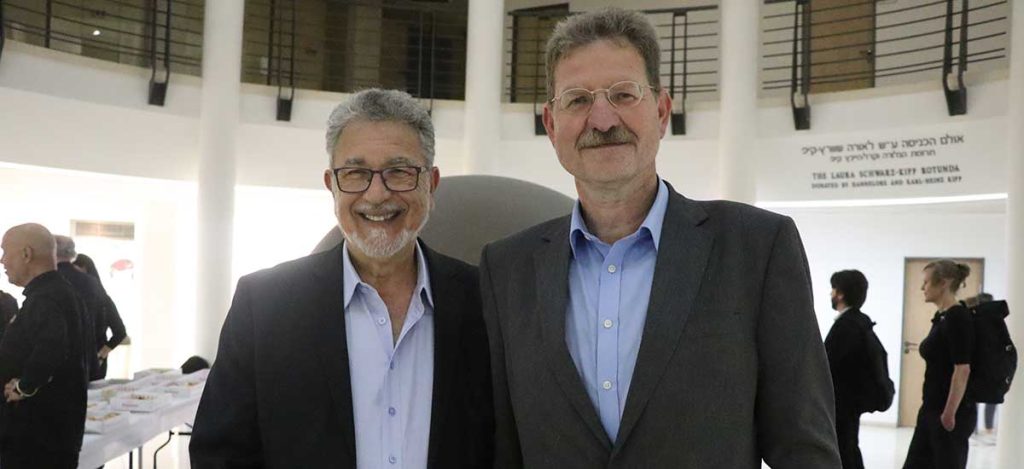Having signed the “Letter of Intent” a year ago, the Frankfurt-Tel Aviv Center for Interreligious Studies has now been officially launched with a two-day conference held in Israel. The program included lectures by Christian, Jewish and Islamic scholars from the fields of theology, religious studies, philosophy and history, exploring the interconnections, relationships, similarities and differences between these three religions of the book. The highlight of yesterday’s conference kick-off was the signing of the cooperation agreement by the two universities’ presidents.

Multicultural societies, religious conflicts, migration, fundamentalism – and not least interreligious dialogue: These are just some of the important and potentially also socially controversial topics the new cross-border research institute could focus on. Since research on these topics can only be conducted from multiple perspectives, Tel Aviv University (TAU) and Goethe University Frankfurt have joined forces to give this research an institutional framework. Having signed the “Letter of Intent” in December 2021, an inaugural conference was held on the German side in June. The conference in Tel Aviv, titled “Thinking Interreligiously: The Many Faces of Interreligious Interaction”, held yesterday and today, marks the cooperation’s official start in Israel.
The past years have seen frequent collaborations between individual scholars from both institutions. In particular, the Martin Buber Professorship at Goethe University’s Faculty of Protestant Theology maintains intensive contacts to TAU, and a strong network also exists between the Buber-Rosenzweig Institute for Modern and Contemporary Jewish Intellectual and Cultural History and the Center for Religious and Interreligious Studies at Tel Aviv University. The new center now combines not only theologies, religious studies, Jewish studies and Islamic studies, but also subjects such as history, philosophy and political science. At the kick-off in Israel, Goethe University is represented by Prof. Christian Wiese, holder of the Martin Buber Professorship, philosophy professor Prof. Matthias Lutz-Bachmann, Islamic Studies scholar Prof. Armina Omerika and historian Prof. Hartmut Leppin.
The ceremonial highlight of the conference was yesterday’s signing of the cooperation agreement by the two university presidents, Prof. Ariel Porat (TAU) and Prof. Enrico Schleiff (Goethe University), as well as the center’s initiators and founding directors Christian Wiese (Goethe University) and Menachem Fisch (TAU). The research center will now enter a three-year pilot phase, funded with 50,000 euros annually by Goethe University and 20,000 euros annually by Tel Aviv University. The new center will be led by a joint directorate and is intended to connect experienced scientists with researchers just starting their careers. In that spirit, a joint symposium for young scientists was held this past summer semester, and joint English-language courses are scheduled to begin in April 2023. In the long term, the agreement also envisages intensive cooperation between master’s programs in religious studies on both sides.
Prof. Enrico Schleiff, Goethe University President:
“Our joint center is more than a scientific institution. In times of rising nationalism and anti-Semitism, this center’s opening is also an important sign of friendship and cooperation that we are sending out into the world. The academic topic we are jointly focusing on is highly relevant to both Germany and Israel: the history and current challenges of religious diversity, differences and conflict in pluralistic societies. Both our universities were already well positioned on this topic. Now they are combining their strengths to form a joint center that marks the start of an even more intensive cooperation – a development I am very pleased about. I would like to thank our partners in Tel Aviv and especially Prof. Wiese for their tireless efforts to establish this groundbreaking institution.”
Prof. Christian Wiese, Martin-Buber-Professorship at Goethe University:
“There is no better way to inaugurate a joint German-Israeli research center than with an intensive public discussion of its underlying theoretical objectives. This conference marks the beginning of an exciting joint scientific and science policy journey in which we place great hope.”
Prof. Milette Shamir, TAU Vice President in charge of international academic collaboration:
“Tel Aviv university has a wide network of collaboration with German universities, more than with any other country in Europe. This collaboration includes hundreds of joint research projects as well as hundreds of German students who come to our campus each year. The joint center expands this collaboration in an important new direction and tightens our existing partnership with Goethe University Frankfurt, one of the leading universities in Germany. We hope that in the near future GUF and TAU will expand collaboration to several other areas of common strength.”
Prof. Menachem Fisch, co-initiator of the Center, and TAU professor:
“I am thrilled to be part of the establishment of a unique, first-of-its-kind center for the interreligious study of the monotheistic faiths and their mutual development. This is a worthy initiative, and one more building block in the academic collaboration between the two countries.”










